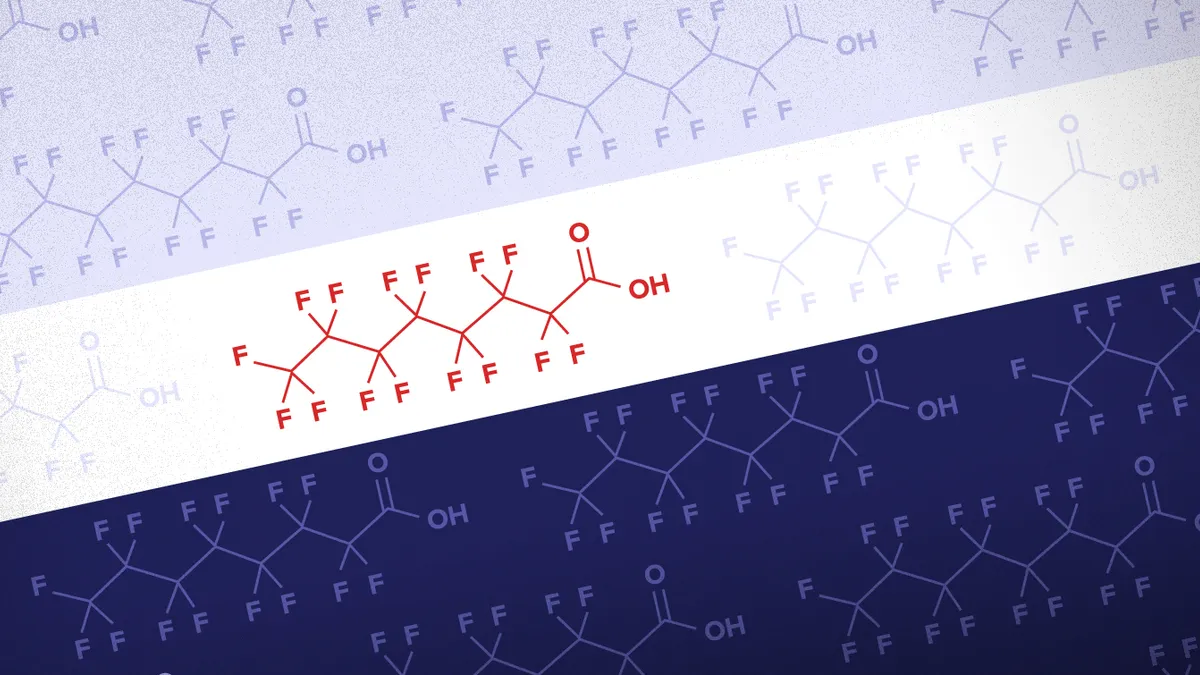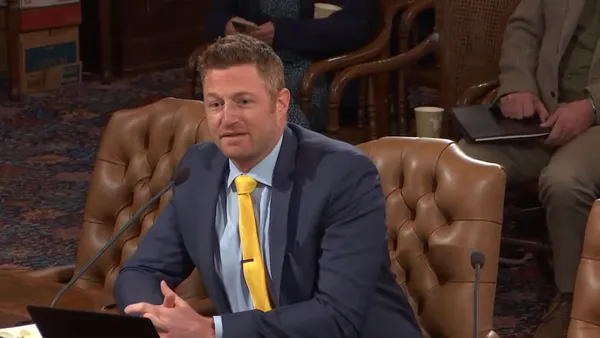Dive Brief:
- A bill introduced this week in Congress is meant to protect some solid waste management and compost facilities from liability claims if the U.S. EPA designates certain PFAS compounds as hazardous substances.
- Led by Sen. Cynthia Lummis, R-Wyo., the Resource Management PFAS Liability Protection Act aims to exempt composters and operators of solid waste facilities from responsibility for certain “costs and damages” related to releases of certain per-and polyfluoroalkyl substances in the environment.
- The EPA plans to designate two PFAS compounds, PFOS and PFOA, as hazardous substances under the Comprehensive Environmental Response, Compensation and Liability Act (CERCLA), also known as Superfund. Waste industry operators consider themselves “passive receivers” of PFAS-containing material and believes the EPA’s decision could have costly unintended consequences.
Dive Insight:
Waste, recycling and composting groups, as well as water treatment facilities, have been asking Congress to step in on their behalf for several months. They worry the anticipated CERCLA designation — which has not taken effect yet and is expected to be finalized later this year — could expose them to expensive lawsuits, cost them millions in sorting and processing costs or hinder their ability to safely manage materials by forcing them to reject PFAS-containing items.
WM, a supporter of the bill, “strongly supports regulatory efforts to reduce exposure to PFAS in the environment,” but is concerned that PFAS regulation under Superfund would force “essential public services and the communities we serve to bear significant costs and liabilities,” COO John Morris said in a statement.
During a congressional briefing in March, groups like the Solid Waste Association of North America, the National Waste & Recycling Association, the U.S. Composting Council and asked for a specific exemption from CERCLA.The groups applauded Lummis’ resulting bill.
“We believe a narrow exemption for the municipal solid waste industry serves to keep CERLCA liability on the industries that created the pollution,” said NWRA CEO Darrell Smith in a statement. NWRA applauded the bill’s “balanced approach to ensure that landfills will remain the safest method to manage solid waste.”
Jesse Maxwell, SWANA’s advocacy and safety senior manager, added in an email that the bill is “an important step forward in ensuring that the ‘polluter pays’ principle under CERCLA stays in place.”
Frank Franciosi, executive director of the U.S. Composting Council, said the bill helps protect compost producers as environmental stewards. “Composting and compost application plays an important role in this nation's resource management strategy,” he said in a statement.
The bill applies to owners and operators of covered compost operations and solid waste management facilities such as landfills and transfer stations, plus others defined by the Solid Waste Disposal Act. The bill stipulates those operations will still need to comply with necessary permitting requirements and won’t be protected if found to act “with gross negligence or willful misconduct in the discharge, disposal, management, processing, conveyance, or storage” of PFAS, the
Lummis’s Resource Management PFAS bill is part of a set of five bills each meant to protect specific industries from unintended liability or costs. Other bills cover entities such as the agriculture and water treatment sectors — which Lummis said don’t generate PFAS — as well as entities such as fuel depots, airports and refineries that are required by law to use firefighting foam known to contain PFAS.
“There is no doubt we need to consider the environmental impacts of PFAS chemicals but suing entities who did not contribute to the contamination is overkill,” Lummis said in a statement.
The bills have a number of other sponsors, all Republicans: Sens. Roger Wicker of Mississippo, John Boozman of Arkansas, Kevin Cramer of North Dakota, Pete Ricketts of Nevada, Markwayne Mullin of Oklahoma, Dan Sullivan of Alaska and Lindsay Graham of South Carolina.
The EPA is also considering separate PFAS standards for drinking water, with a final rule possibly coming by the end of the year, and is undertaking other PFAS-related studies outlined in the agency’s long-term PFAS Roadmap plan. Though some waste companies see future PFAS regulations as a potentially expensive endeavor for daily operations, some also see it as a possible business opportunity.















